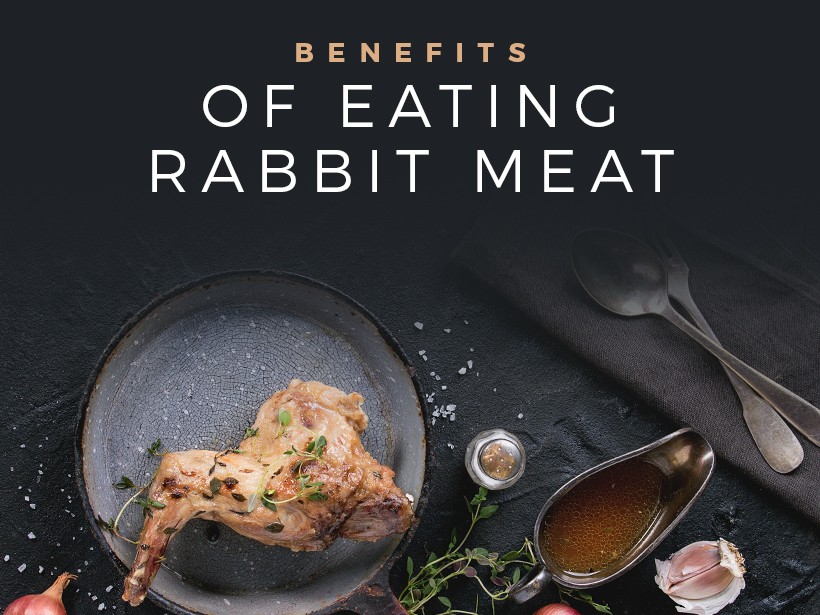One of the challenges that people new to the keto diet face is trying to find enough variety in the foods that they eat. While much attention is given to what foods you cannot eat because of their high carb content, it can be equally challenging trying to find different types of meats to include in your diet. After eating roasted chicken for the fifth day in a row, most people might begin to feel frustrated at the lack of diversity in their diet. Rabbit meat is one great source of protein and healthy fat that is rarely appreciated in the American Diet.
Problems with Meat from Factory Farms
Over 99 percent of animals raised for meat in the United States are raised on factory farms where heavy chemical inputs are part of the norm. From hormones to help increase growth rates to heavy doses of antibiotics to prevent outbreaks of diseases that would cut into profits, factory farms are notorious for providing meat products that could possibly cause harm to human beings.
Furthermore, while there has been a major advocacy effort led by health-conscious individuals to label food products that contain genetically modified or GMO crops, one major loophole for agro-corporations is to feed GMO grains to animals via their feeds. Considering that 92 percent of corn and 94 percent of soybeans raised in the USA (the two main crops used in animal feed) are GMO crops, it is safe to say that most animals raised on factory farms are fed GMO crops at some time during their lives.
Why Rabbit Meat?
Every year, over 200 million tons of rabbit meat are produced around the world. Unlike the chicken, pork, and beef industries, however, most rabbit meat is still sourced from small farms and operators who raise a limited amount of rabbits in backyard settings. In the United States, the consumption of rabbit meat is usually limited to marginalized, rural areas, and on a national average, we Americans only eat an average of about 0.02 pounds of rabbit meat per year. However, in other parts of the world, like France, per capita rabbit consumption is over 6 pounds per person per year1.
One of the biggest advantages of eating rabbit meat is that most rabbit meat is produced in organic, small-scale settings where extensive use of agro-chemical inputs is limited. Furthermore, for people wanting to raise their own rabbits, your own flock of backyard rabbits is easy to maintain and can give you hundreds of pounds of meat each year.
Health Benefits of Rabbit Meat
Rabbit meat is a white meat that is very similar to chicken and can be used to replaced chicken in most common recipes. Nutritionally, rabbit meat is extremely high in protein and has a low-fat ratio. While healthy fats are certainly important in the keto diet, rabbit meat also has a cholesterol content of 59 mg/100 g and a ratio omega 6/omega 3 of 5.9, meaning that rabbit meat also provides a healthy amount of important fatty acids2.
Furthermore, rabbit meat has a very low sodium content while being high in phosphorous, calcium and other important vitamins and minerals. Compared to other common animals raised for meat, rabbits are also extremely efficient at turning grasses, plants, and other food sources into meat. For example, rabbits can give you six pounds of meat from the same amount of water and feed that a cow would use to give just one pound of meat. Lastly, rabbits have a higher ratio of meal to bone, meaning that you will get more meat off the carcass than even a chicken.
If you’re looking for a healthy, natural source of meat to give your keto diet some diversity, consider including rabbit into your culinary repertoire!
NUTRITIONAL DISCLAIMER
The content on this website should not be taken as medical advice and you should ALWAYS consult with your doctor before starting any diet or exercise program. We provide nutritional data for our recipes as a courtesy to our readers. We use Total Keto Diet app software to calculate the nutrition and we remove fiber and sugar alcohols, like erythritol, from the total carbohydrate count to get to the net carb count, as they do not affect your blood glucose levels. You should independently calculate nutritional information on your own and not rely on our data. The website or content herein is not intended to cure, prevent, diagnose or treat any disease. This website shall not be liable for adverse reactions or any other outcome resulting from the use of recipes or recommendations on the Website or actions you take as a result. Any action you take is strictly at your own risk.
- Benefits of Eating Rabbit Meat - August 20, 2018
- Raising Your Own Food for a Keto Diet: A Primer on Raising Rabbits - August 15, 2018
- Some Possible Health Effects of Meat Raised on Industrial Farms - June 25, 2018




